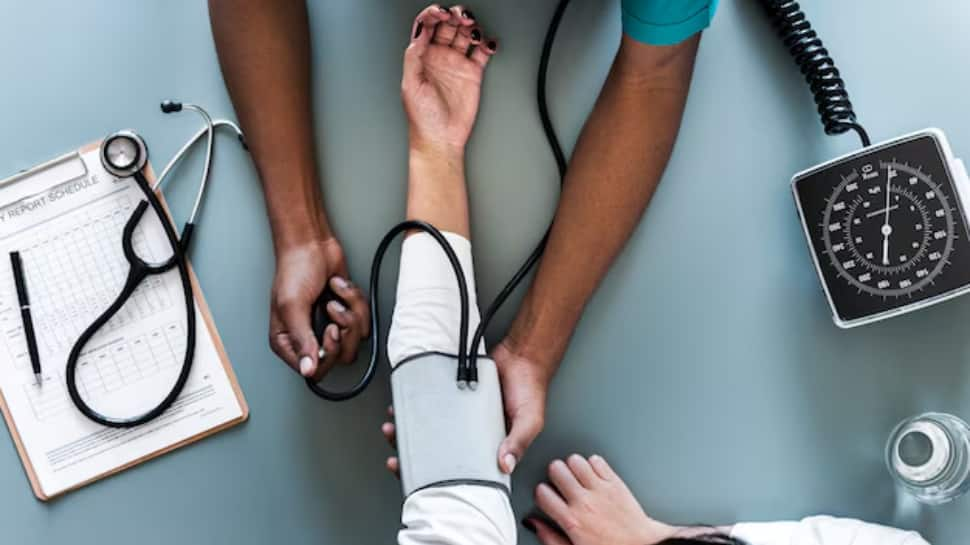High blood pressure, or hypertension, is a common health issue that can increase the risk of heart disease, stroke, and kidney problems. While medication is sometimes necessary, many lifestyle changes can help manage and reduce blood pressure naturally.
Here are nine simple and effective tips to get started:-
1. Reduce Salt Intake
Excess sodium in your diet can raise blood pressure significantly. Opt for fresh, home-cooked meals, use herbs and spices instead of salt for flavor, and limit processed and packaged foods.
2. Eat a Balanced Diet
A diet rich in fruits, vegetables, whole grains, and lean proteins helps regulate blood pressure. The DASH (Dietary Approaches to Stop Hypertension) diet is especially recommended for lowering hypertension.
(Also Read: Is Your Blood Pressure Too High? 5 Symptoms That Could Be A Warning From Your Body)
3. Exercise Regularly
Physical activity strengthens the heart and improves circulation. Aim for at least 30 minutes of moderate exercise—like brisk walking, swimming, or cycling—five days a week to keep blood pressure under control.
4. Maintain a Healthy Weight
Being overweight puts extra strain on the heart and arteries. Losing even a small amount of weight can make a significant difference in lowering blood pressure.
5. Limit Caffeine
Excessive caffeine consumption can increase blood pressure, while too much caffeine may temporarily spike it. Stick to moderation—one drink per day for women and two for men—and monitor your caffeine sensitivity.
6. Manage Stress
Chronic stress contributes to high blood pressure. Practice relaxation techniques like deep breathing, yoga, meditation, or journaling to calm the mind and reduce tension.
7. Quit Smoking
Smoking damages blood vessels, raises blood pressure, and increases the risk of heart disease. Quitting smoking improves cardiovascular health almost immediately and lowers long-term risks.
8. Get Quality Sleep
Poor sleep patterns, such as sleep apnea or insomnia, can worsen blood pressure. Aim for 7–8 hours of restful sleep each night and maintain a consistent sleep schedule.
9. Monitor Blood Pressure Regularly
Regular checkups help track your progress and identify potential issues early. Home monitors can also be useful for keeping daily records and adjusting lifestyle choices accordingly.
Lowering blood pressure naturally requires consistent lifestyle changes, but small steps can make a big impact over time. By eating well, staying active, managing stress, and prioritizing overall wellness, you can support heart health and reduce the risk of hypertension-related complications.
(This article is meant for informational purposes only and must not be considered a substitute for advice provided by qualified medical professionals.)

